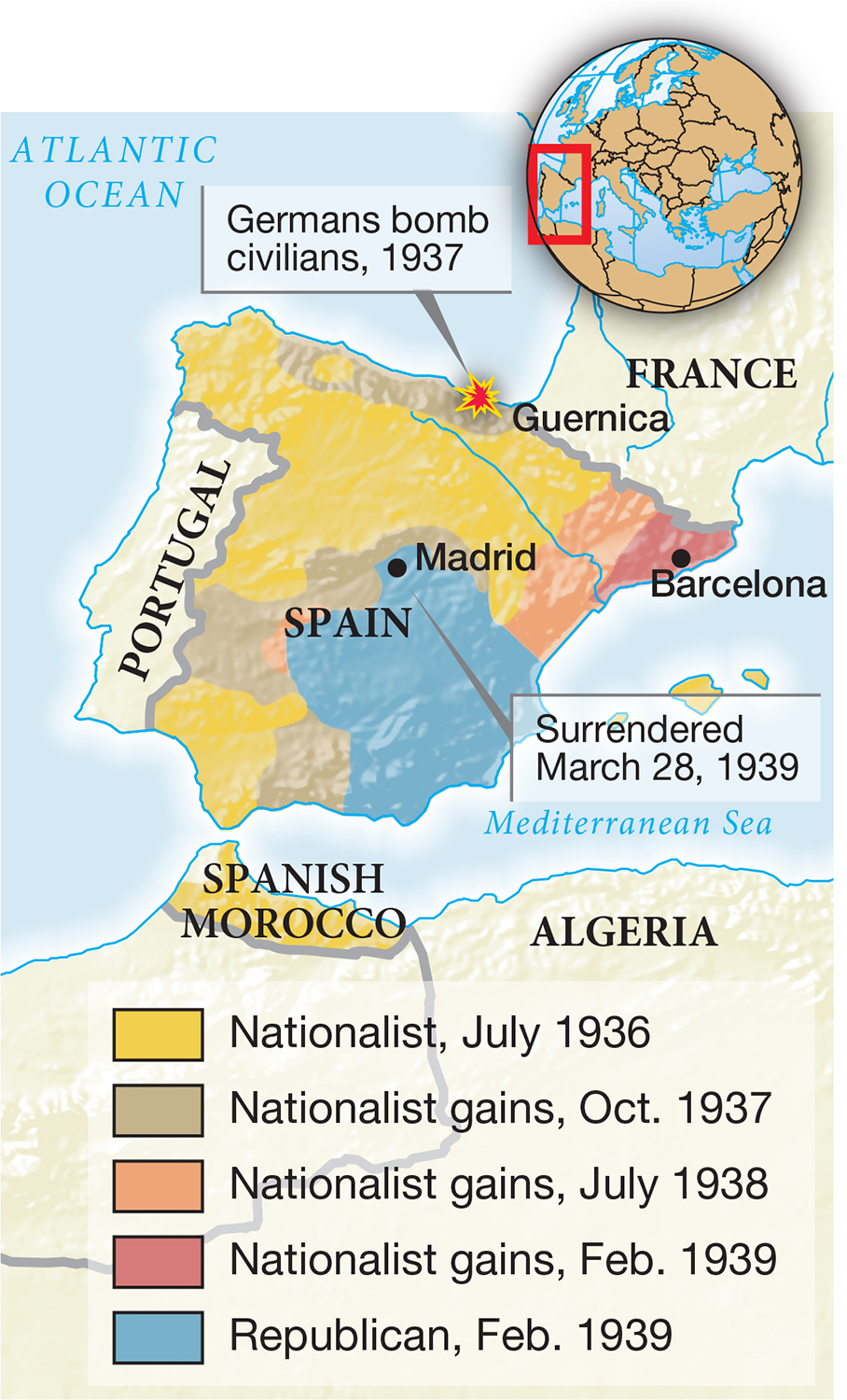The American Promise:
Printed Page 710
The American Promise Value
Edition: Printed Page 665
The Price of Noninvolvement
In Europe, fascist governments in Italy and Germany threatened military aggression. Britain and France only made verbal protests. Emboldened, Hitler plotted to avenge defeat in World War I by recapturing territories with German inhabitants, all the while accusing Jews of polluting the purity of the Aryan master race. The virulent anti-
In Japan, a stridently militaristic goverment planned to follow the invasion of Manchuria in 1931 with conquests extending throughout Southeast Asia. The Manchurian invasion bogged down in a long and vicious war when Chinese Nationalists rallied around their leader, Jiang Jieshi (Chiang Kai-
In the United States, the hostilities in Asia and Europe reinforced isolationist sentiments. Popular disillusionment with the failure of Woodrow Wilson’s idealistic goals caused many Americans to question the nation’s participation in World War I. In 1933, Gerald Nye, a Republican from North Dakota, chaired a Senate committee that concluded that greedy “merchants of death”—American weapons makers, bankers, and financiers—
By 1937, the growing conflicts overseas caused some Americans to call for a total embargo on all trade with warring countries. The Neutrality Act of 1937 attempted to reconcile the nation’s desire for both peace and foreign trade with a “cash-

The desire for peace in France, Britain, and the United States led Germany, Italy, and Japan to launch offensives on the assumption that the Western democracies lacked the will to oppose them. In March 1936, Nazi troops marched into the industry-
In Spain, a bitter civil war broke out in July 1936 when the Nationalists—
Hostilities in Europe, Africa, and Asia alarmed Roosevelt and some Americans. The president sought to persuade most Americans to moderate their isolationism and find a way to support the victims of fascist aggression. He warned that an “epidemic of world lawlessness is spreading” and pointed out that “mere isolation or neutrality” offered no remedy. The popularity of isolationist sentiment caused Roosevelt to remark, “It’s a terrible thing to look over your shoulder when you are trying to lead and find no one there.” Roosevelt understood that he needed to maneuver carefully if the United States were to help prevent fascist aggressors from conquering Europe and Asia, leaving the United States an isolated island of democracy.
REVIEW Why did isolationism during the 1930s concern Roosevelt?